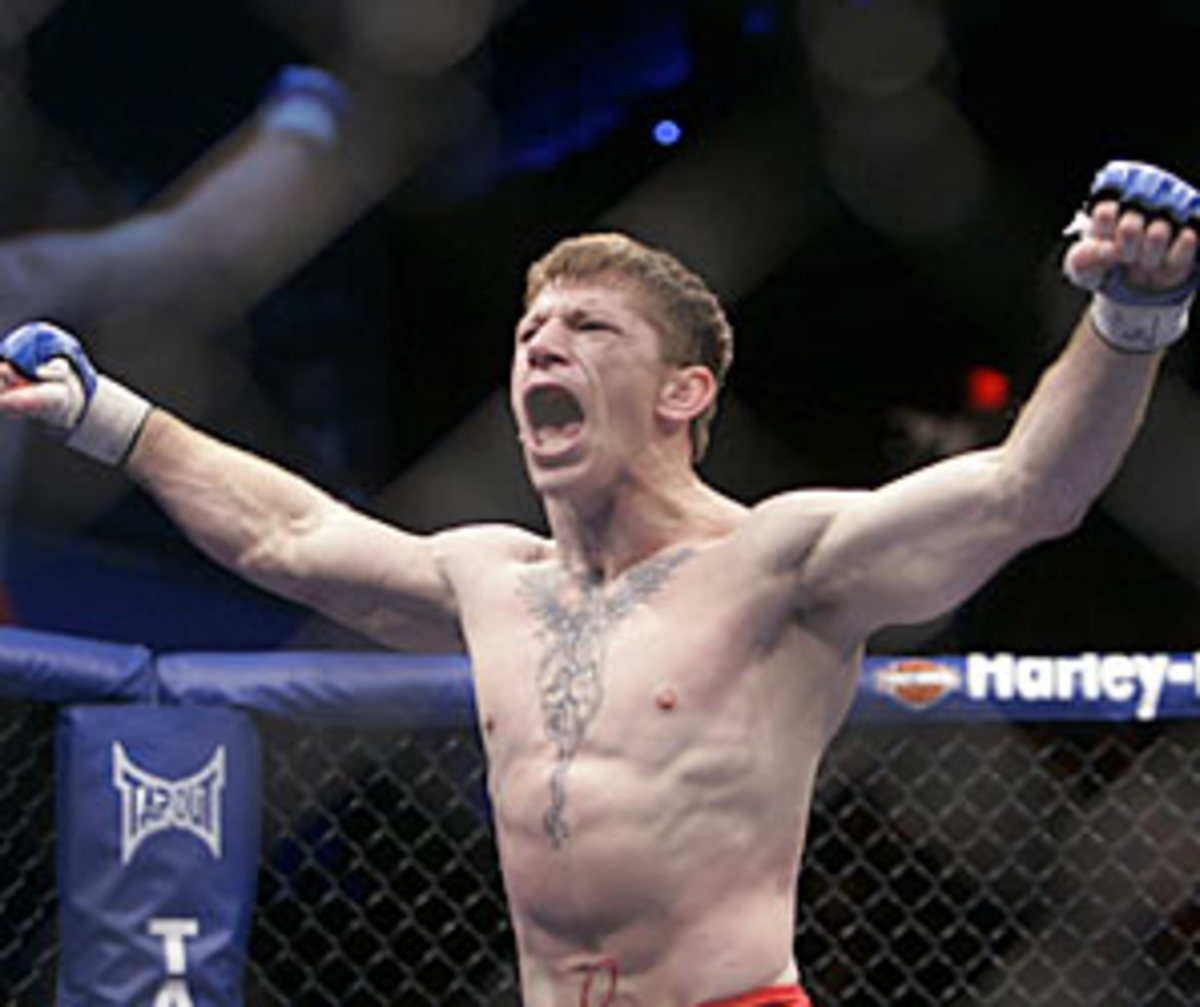Brown still searching for respect
"The average guy on the street just doesn't understand it," Brown says. "I get asked all the time, 'You're the WEC champ now, so does this mean you get to go to the UFC?' It's frustrating sometimes. I've reached the number one spot for my weight, but unless you're a real hardcore MMA fan you don't know what that means. To other people, it's like I'm an amateur champ or something."
For Brown the frustration doesn't necessarily end there. Even though he took the WEC title from the organization's poster boy, Urijah Faber, there's still something about the victory that has much of the MMA world taking a wait-and-see approach to his title reign.
UFC heavyweight champ and WEC color commentator Frank Mir called Faber "a victim of his own success" in that fight, chalking the loss up more to Faber's mistake than Brown's ability. Even Brown's first-round knockout of Leonard Garcia in his first title defense didn't silence all the doubters. Fortunately, that's exactly why they invented rematches.
This Sunday night he meets Faber in the WEC cage for a second time in a fight that's designed to answer all the questions. Either Brown will prove that his first victory was no fluke, or he'll be remembered as the guy who made Faber tighten up his game to stay on top.
At least, that's the perception from the outside. Inside Florida's American Top Team, everyone knows who the rightful featherweight champ is. To them, and to Brown, those doubts have already been put to rest. This isn't about winning over skeptics so much as simply winning another title defense.
"I think I've proved it now," he says. "I mean, I read a lot on the internet, people saying it was a fluke and all that. But I think when I beat Garcia pretty quickly too, and almost in the same way since I hurt him with the right hand and then finished him off, then it was basically like a replay. That showed it wasn't a one-time deal, that I could do this to good guys."
Part of the shock of Brown's title victory stemmed from the perception of many fight fans that he seemed to come out of nowhere. His title shot came in just his second WEC fight, though he'd competed everywhere from Japan to the UFC before then. In fact, it was his lone UFC fight in 2004 -- a submission loss to Genki Sudo -- that first put him on the path to leaving his home in Maine and finding his current training grounds at American Top Team.
"I got submitted twice in a row, once against Sudo and once against Joe Lauzon. But in training I was never getting submitted. I'd go a long, long time without ever getting tapped, and I knew this was a problem. I knew I had to get with some high-level jiu-jitsu guys because that was a hole in my game."
He couldn't have found a much better remedy for that problem than ATT. The mats there are thick with high-level black belts and jiu-jitsu world champs on any given night. Thanks to the training he's gotten there Brown hasn't lost a fight in three and a half years. And yet with all his success it's only recently that he's been able to focus all his energy on becoming a better fighter. For far too long the money just wasn't there for 145-pounders, forcing Brown to do everything from pump gas to stack beer just to keep food in his belly and a roof over his head.
"I would work a minimal amount of hours just to pay my bills so I could train. I would do it so I could barely scrape by and train as much as possible to try to get better. Even then there was no money at 145 [pounds]. I don't know why I was doing it. I guess it was just because I hate working and I want to do what I want to do, you know? I like to fight and I was doing it because I would do it for free. I mean, I basically was doing it for free."
The absurdity of his position really hit him when he fought in an eight-man tournament in Japan. The brackets were filled with some of the best fighters in the division, meaning the eventual champion would have to win three very tough fights to claim the grand prize: $10,000.
"After taxes and management you're looking at six or seven grand," Brown laughs. "What can you buy for that?"
But he kept at it then for largely the same reasons he keeps at it now that he's sitting at the top of the heap. He really can't think of anything else he'd rather do. Even though there's been very little money in it until recently, and even though the relatively few people who do know what the WEC featherweight title really means might think it's his thanks only to someone else's error, it doesn't change the fact that Brown is getting to do exactly what he wants to do every day.
And until someone beats him, he's doing it as the WEC champ. Whether you respect him or not.





